No Questions Asked
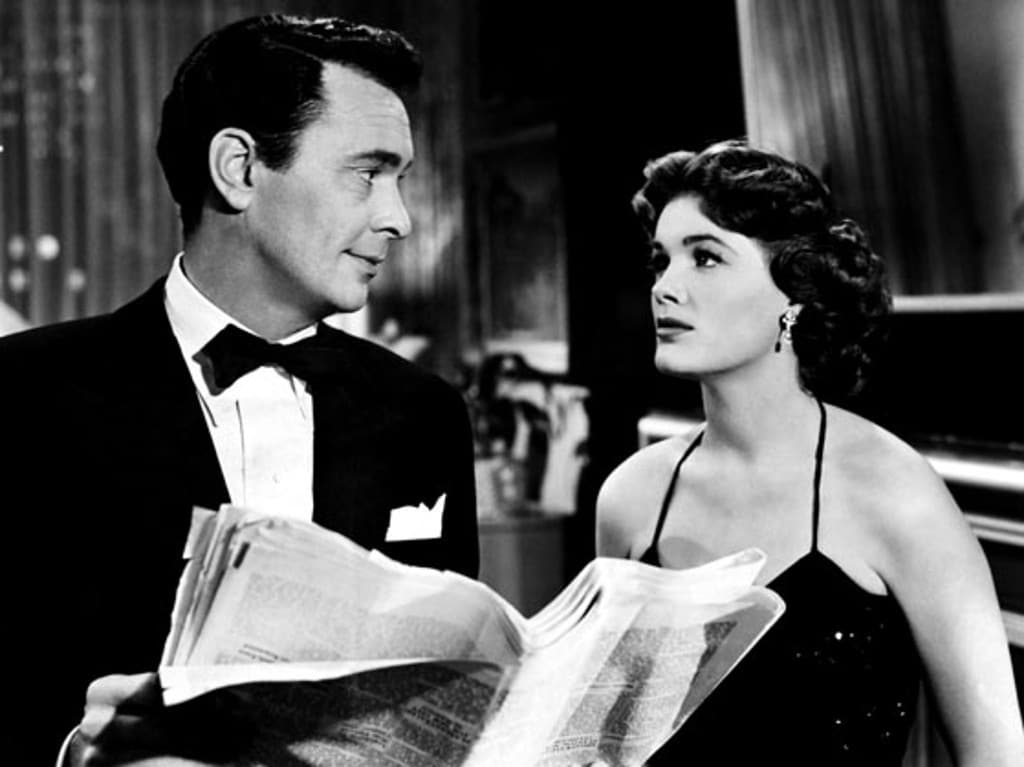
Brief Synopsis
Cast & Crew
Harold F. Kress
Barry Sullivan
Arlene Dahl
George Murphy
Jean Hagen
Richard Anderson
Film Details
Technical Specs

Synopsis
As he hides from police on a dark New York City street, Steve Kiever recalls how he got to this point: A brilliant but unambitious lawyer, Steve works for a large insurance company. Although he prefers helping people to making money, his beautiful fiancée, Ellen Sayburn, wants the finer things in life, and Steve promises to ask for a raise. His boss, Henry Manston, cannot give him the raise, but assures Steve that he has a bright future. When Manston makes an off-handed comment that he would gladly pay $10,000 to recover some stolen furs rather than pay a much higher claim, Steve gets an idea. With the help of his friend, taxicab driver Harry Dycker, Steve goes to various underworld hangouts, offering $10,000, no questions asked, to recover the furs. He encounters suspicion at first, and is roughed up, but eventually makes contact with mobster nightclub owner Marty Callbert, who arranges the deal. Manston is happy to recover the furs and give Steve a $2,500 reward, but warns him of the potential danger. After Steve's well-executed plan goes through, he goes to Ellen's apartment with an expensive engagement ring, but learns from her neighbor that Ellen has gone to Europe with her new husband. Stunned, Steve returns to Marty's club and gets drunk. Marty suggests that they continue to work together, and soon Steve is so successful at recovering stolen merchandise that he leaves the insurance company and goes out on his own. Although Steve is technically not breaking any laws, Inspector Matt Duggan feels that he is responsible for an increase in robberies of expensive merchandise. Manston has no choice but to accept the recovered items, but increasingly dislikes it. Joan Brenson, a secretary at the insurance company who has always been in love with Steve, is now his girl friend, but worries that he is getting in too deep. One night, when Steve takes Joan to a Broadway opening, she runs into Ellen in the powder room and recognizes her from a picture in Steve's apartment. A moment later, two women draw guns and rob the wealthy occupants of the powder room. Joan tries to stop them, but is knocked out. The thieves are whisked away in a waiting taxi, where they remove their wigs and laugh over how convincing they were as women. Soon the police arrive and question the victims, who describe the thieves as attractive women, and no one suspects that two of gangster Franko's henchmen, Floyd and Roger, are actually the thieves. Duggan holds Steve responsible for the robbery, but Steve is too concerned about Joan and Ellen, whom he has just seen in the lobby, to care. The next day, Steve finds out where Ellen and her husband, Gordon N. Jessman, are staying and goes to her. He is angry, but soon kisses her, and she says that she made a mistake and is going to leave Gordon. Steve then meets Joan for lunch at their favorite café and confirms what she suspected, that he still loves Ellen. When Steve later learns from Manston that the robbery amounted to $860,000, he presses for a higher fee and recovery amount. Manston reluctantly agrees to pay $250,000 for the merchandise and $100,000 to Steve. Steve tries to make a contact, but at the racetrack learns that Duggan is picking up his usual go-betweens, and those who have not been taken in are afraid to deal with him. Meanwhile, Floyd, who is anxious for his cut of the robbery, goes into Harry's cab and threatens him, saying that Steve cannot back out of the deal, which is set for that night. When Harry goes to the café to tell Steve, he only finds Joan, who is drunk, and asks her to deliver the message. She then goes to Steve's apartment and tells him the plan, even though hurt that Ellen is there. Following instructions, Steve heads for Franko's hotel. When he sees a men's ballet class, he guesses that the "women" thieves were really slightly built, graceful men. Steve agrees to the deal, then secretly calls Duggan so that he can arrest the men when the transfer takes place at his apartment at 11:00 pm. Duggan sends Detective Walter O'Bannion to stay with Steve. At 11:00, the jewels are delivered, but a few moments later, the lights go out and shots are fired. Steve finds that O'Bannion has been killed and the jewels are gone. He then sneaks out of his building and Duggan issues an all-points bulletin for his arrest. Steve goes to Franko, who seems genuinely shocked that the jewels were stolen. Suspicious, Franko and some of his thugs start to take Steve out of the hotel, but Steve escapes among some drunken conventioneers. He then goes to Harry's apartment. Although at first suspicious that Harry had double-crossed him, Steve soon realizes that Harry is a true friend. Steve then goes to see Joan and says goodbye. Meanwhile, Ellen and Gordon are hurriedly packing when Floyd and Roger show up and take them at gunpoint. Steve observes them driving away and secretly follows them to Franko's, where Franko demands that Ellen and Gordon give him the jewels. As Steve tries to call Duggan at a payphone in the lobby, Floyd sees him and quickly hangs up the phone. In the boiler room, when Ellen and Gordon refuse to cooperate, Floyd's thugs badly beat Ellen and shoot her and Gordon. When Floyd arrives with Steve, they take him out through the hotel's pool area. Steve makes a move for Franko and the two men tumble into the pool. Franko, who routinely practices underwater endurance, is able to free himself after Steve drowns. As Franko rises to the surface, though, he and his cohorts are captured by Duggan and his men. They quickly get Steve out of the pool and are able revive him. Later, as Steve is about to be placed in an ambulance, he is comforted by Joan. Although Duggan says Steve is still in trouble, he lets Joan go to the hospital with him.

Director
Harold F. Kress
Cast

Barry Sullivan

Arlene Dahl

George Murphy
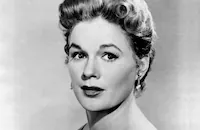
Jean Hagen

Richard Anderson

Moroni Olsen
Dan Dayton
Dick Simmons
Howard Petrie
William Phipps
William Reynolds
Mauritz Hugo

Mari Blanchard
Robert Sheppard
Michael Dugan
Howland Chamberlin
Richard Bartlett
Robert Osterloh
Bert Roach
Dick Cogan
Herb Vigran
Lane Nakano
Ivan Browning
Mike Pat Donovan
Richard Karlan
Dolores Castle
Jeffrey Sayre
Madge Blake
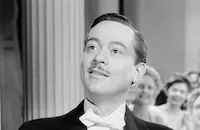
John Eldredge
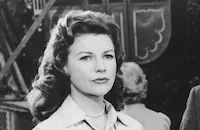
Nan Leslie
Wilson Wood
Louis Nicoletti
Jimmy Ames
Lester Dorr
Tommy Bernard
Bradford Hatton
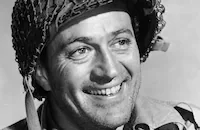
Don Haggerty
George Magrill
Robert Strong
Tol Avery
John Cliff
John Damler

Bob Wilke
Andre Charise
George Garvey
Joey Gray
John Indrisano
David Newell
Bert Davidson

Juanita Moore
Eddie Simms
Elizabeth Flournoy

Bess Flowers
Lela Bliss
Helen Eby Rock
Moyna Andre
Lucile Curstis
Inez Gorman
Helen Dickson
Dulce Day
Kay Scott
Crew
Reggie Callow
Joseph Dervin
Cedric Gibbons
Berne Giler
A. Arnold Gillespie
Bert Glazer
Paul Groesse
Sydney Guilaroff
Charles Hunt
Conrad Kahn
Arthur Krams
Harold Lipstein
Nicholas Nayfack
Warren Newcombe
Cole Porter
Matthew Rapf
Helen Rose
Douglas Shearer
Sidney Sheldon
Leith Stevens
William Tuttle
Edwin B. Willis

Videos
Movie Clip
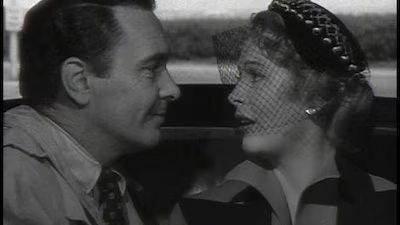
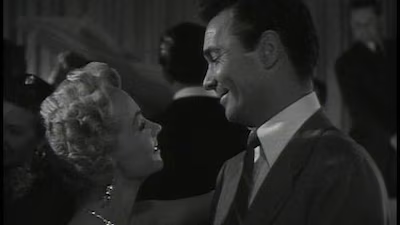

Trailer
Hosted Intro
Film Details
Technical Specs

Articles
No Questions Asked
Based on an original story by Berne Giler, No Questions Asked married film noir shadows to an expose of the insurance business, in which policy carriers were growing far too accustomed to dealing directly with the underworld in a bid to stave off having to pay off on weighty insurance claims. Top-billed Sullivan plays the wide-eyed employee of such a company, whose adherence to the straight and narrow costs him acquisitive gal pal Dahl (who dumps him on principle, without admitting that she has already remarried). Beginning near the end and rolling into a flashback on "how it all happened," No Questions Asked treads on Night and the City (1950) territory, with Sullivan's fall from grace tied up with the false charge of killing a cop, and the ensuing manhunt pushing desperate characters to desperate measures. Dahl has a ball as the greedyguts Ellen Sayburn (a role intended for Donna Reed), leaving Jean Hagen to play the nice girl. If the proceedings have a melodramatic aspect, blame screenwriter Sidney Sheldon, then a busy (and Academy Award-winning) writer-for-hire who went on to pen such trash classics of summer reading as The Other Side of Midnight, Bloodline, and Rage of Angels.
Arlene Dahl's career never ran apace with the superlatives offered up in testimony to her beauty. She continued appearing in films through the decade, costarring with Alan Ladd in Desert Legion (1953), with second husband Fernando Lamas in Sangaree (1953), and with Rock Hudson in Bengal Brigade (1954), but none was particularly worthy of her. She played a kleptomaniac struggling with reform in Slightly Scarlet (1956), opposite John Payne, but traveling to England paid better dividends, character-wise. In She Played with Fire (1957), costarring Jack Hawkins, Dahl appeared to be back up to her old tricks in a tale of an insurance investigator who becomes the prime suspect in a murder-for-profit plot after rekindling a romance with an old flame (guess who). Though she retired from acting after pairing with James Mason for Journey to the Center of the Earth (1959), Dahl kept busy, redefining herself as a Chicago Tribune columnist, business woman, and health and beauty expert, while occasionally taking small roles in such films as the French The Pleasure Pit (1969) and Night of the Warrior (1991), in support of actor son Lorenzo Lamas.
By Richard Harland Smith
Sources:
The Other Side of Me by Sidney Sheldon (Grand Central Publishing, 2004)
Biography of Arlene Dahl by Rolf J. Canton, Minnesotans in the Movies (Nodin Press, 2006)

No Questions Asked
Quotes
Trivia
Notes
In the film, it is unclear whether "Ellen Sayburn" is killed by "Franko's" thugs, or merely beaten. According to a Hollywood Reporter news item, Lou Smith, Clark Gable's longtime stand-in, was to have an "important role" in the picture, but his appearance in the released film has not been confirmed. No Questions Asked marked the first time that then teenaged-actor Williams Reynolds, previously billed as "William Regnolds," was billed as Reynolds.

Miscellaneous Notes
Released in United States Summer June 15, 1951
Released in United States Summer June 15, 1951















